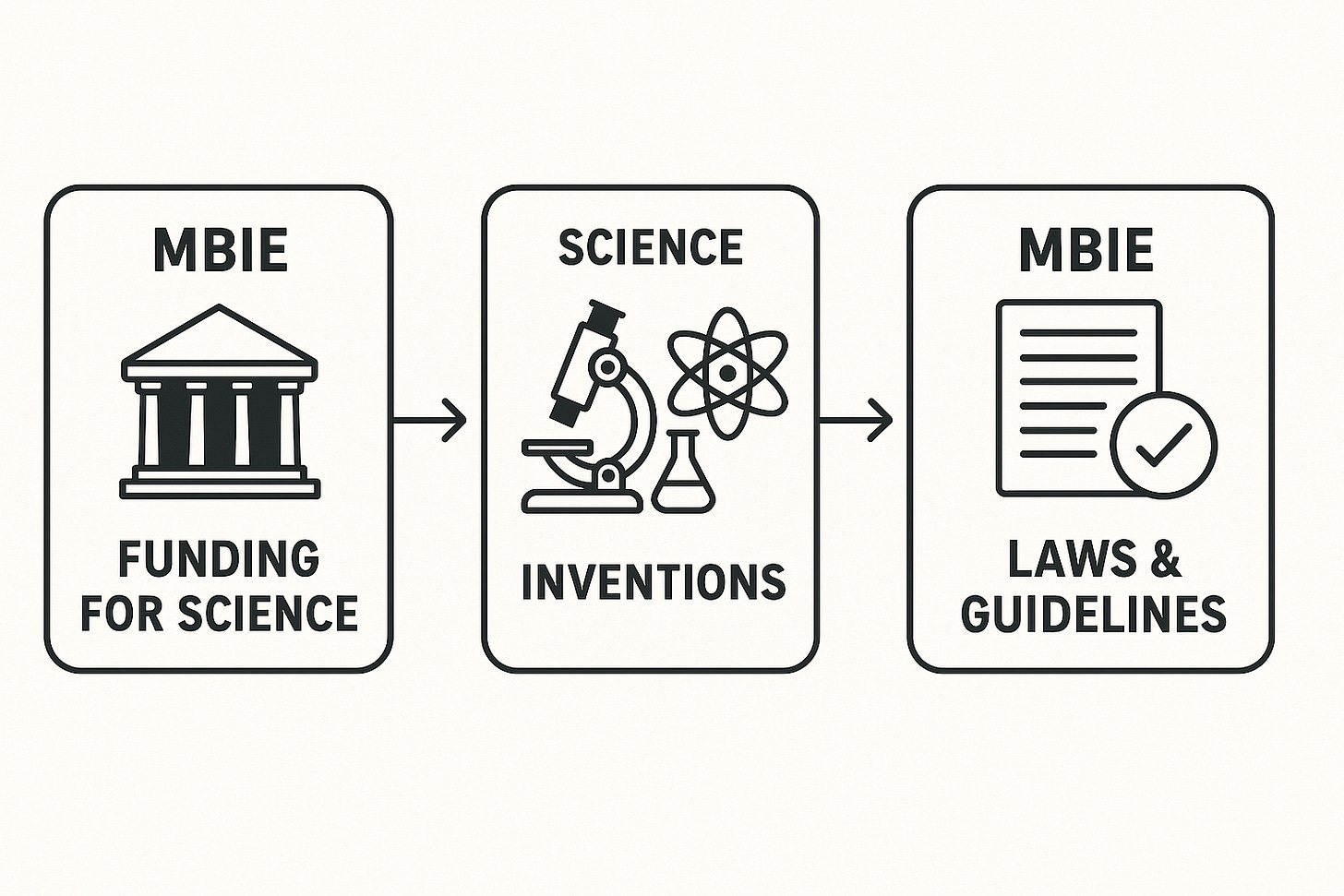When the economic growth agency captures biotech regulation: ‘A serious question of science’
Amazing vertical integration by MBIE. Bravo. Control science policy, then control the regulation of the inventions
Just published today on New Zealand’s Daily Telegraph site. Here is an extract - or feel free to jump straight to the original article:
When the economic growth agency captures biotech regulation: ‘A serious question of science’
A remarkable situation has arisen in New Zealand.
The agency tasked with economic growth, that controls the science funding budget, wants to have the power of administering the legislation that would steward the very technologies that it directly funds scientists to produce. It’s the most perfect form of vertical integration and it says a lot about the biggest risk to democracy – the concentration and centralisation of power.
The New Zealand public is growing increasingly sceptical about the capacity for democratic institutions to put our best interests at heart. Conventions and processes are in place to ensure that these institutions are transparent and accountable. Public-good policy requires that the information underpinning decision-making is of the best possible standard.
But what if those processes are bypassed? If processes of knowledge gathering are knee-capped? What if scientists and researchers have become so hemmed in by tightly controlled policy that they are more like pawns in a chess game, rather than truth-seekers driven by curiosity to expand knowledge for the betterment of society?
How does this entrapment of science ‘come out in the wash’?
New Zealand’s government agency for economic growth, the Ministry for Business, Innovation and Employment (MBIE) is so entranced by the promise of biotechnology that has, to all appearances, short-circuited the democratic process and good regulatory practice. The industry-friendly legislation would lower the barriers to market for the very innovations it funds.
It’s all quite extraordinary. MBIE controls New Zealand’s science funding budget. This was quietly achieved a decade ago, using secondary legislation. MBIE’s policies for science funding prioritise the development of patents and intellectual property rights – what those on the inside call ‘innovation’. This means that scientists applying for funding of research projects that don’t include ‘innovation’ outcomes get pushed down the ladder.
This has become a case study that may not only reflect New Zealand’s woes, but mirror the global crises in policy and science across the western world.
Responsibility for regulation of new gene technologies from New Zealand’s Environmental Protection Authority to MBIE is presumed, even though MBIE has no expertise in human or environmental health regulatory processes. MBIE’s Regulatory Impact Statement problem definition placed deregulation, not risk and stewardship as the key ‘problem’ to solve. Then, instead of bringing in a cohort of experts in health regulation, the experts, and groups that were selected in the consultation phases, were the very institutions and interests with financial interests in biotechnology development. And a primary funder across those institutions? MBIE!
To continue reading:
When the economic growth agency captures biotech regulation: ‘A serious question of science’





It's time for separation of science and state. The state needs to be told to keep it's nose out of science.
My understanding is that MBIE were the handlers of the Pfizer contract, and presumably, the orchestrators (and advisors) of the liability waiver extended by Grant Robertson to Pfizer and BioNTech. That didn't and hasn't turned out at all well, but nothing ever does when ethics, morality and science are supplanted by ideology, and co-opted scientivism complicated by unfettered greed becomes a political and bureaucratic mantra.
As reported by RNZ, it was asserted that Grant Robertson notified the NZ Parliament regarding the Pfizer and BioNTech indemnity on 22 November 2020, after granting it to those entities on 5 October.
https://www.rnz.co.nz/news/national/435107/government-grants-vaccine-suppliers-indemnity-against-claims
Contrary to the above RNZ report, Minister Robertson did not "notify the House" as it was a Sunday and the House was not sitting. There is consequently no report of such a notification, or any notification on this day in Hansard.
Moreover, no New Zealand media appears to have reported the following salient fact, one which may be considered an intentional omission until proved otherwise?
The Hon. Grant Robertson, New Zealand Minister of Finance, signed-off on Pfizer / Bio-NTech liability waivers on October 5, 2020, apparently notifying the NZ parliament of the Pfizer and BioNTech indemnity on 22 November. Therefore, Grant Robertson, NZ Finance Minister signed the waivers of liability BEFORE the Pfizer study DATA CUT-OFF DATE of October 9.
"At the data cut-off date of October 9, a total of 37,706 participants had a median of at least 2 months of safety data available after the second dose and contributed to the main safety data set." Safety and Efficacy of the BNT162b2 mRNA Covid-19 VaccineDecember 10, 2020; N Engl J Med 2020;383:2603-2615. https://www.nejm.org/doi/full/10.1056/NEJMoa2034577
Maybe the Minister had a crystal ball? ... May be the Pfizer study "results" were already "in" and "recommended" to the Minister, 5 days before the stated data cut-off? One might even suggest that the study "results" were already known a priori, that "safe and effective" was already up and running as a political mantra?
Naturally, another possible interpretation is that the Ministerial indemnifying waiver of liability may have had absolutely nothing to do with, "safe and effective?